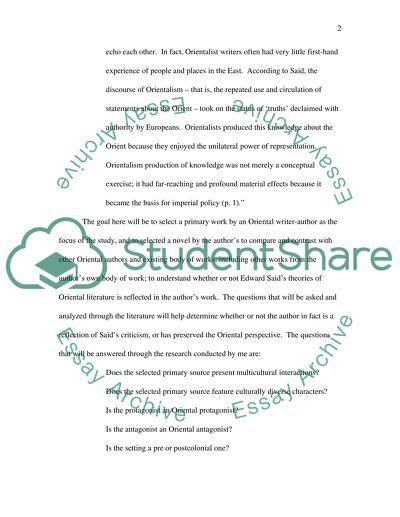Cite this document
(Edward Saids Orientalism and its Implication for Reading Literary Research Proposal, n.d.)
Edward Saids Orientalism and its Implication for Reading Literary Research Proposal. Retrieved from https://studentshare.org/literature/1538116-dissertation-proposal-edward-saids-orientalism-and-its-implications-for-reading-literary-texts
Edward Saids Orientalism and its Implication for Reading Literary Research Proposal. Retrieved from https://studentshare.org/literature/1538116-dissertation-proposal-edward-saids-orientalism-and-its-implications-for-reading-literary-texts
(Edward Saids Orientalism and Its Implication for Reading Literary Research Proposal)
Edward Saids Orientalism and Its Implication for Reading Literary Research Proposal. https://studentshare.org/literature/1538116-dissertation-proposal-edward-saids-orientalism-and-its-implications-for-reading-literary-texts.
Edward Saids Orientalism and Its Implication for Reading Literary Research Proposal. https://studentshare.org/literature/1538116-dissertation-proposal-edward-saids-orientalism-and-its-implications-for-reading-literary-texts.
“Edward Saids Orientalism and Its Implication for Reading Literary Research Proposal”, n.d. https://studentshare.org/literature/1538116-dissertation-proposal-edward-saids-orientalism-and-its-implications-for-reading-literary-texts.


